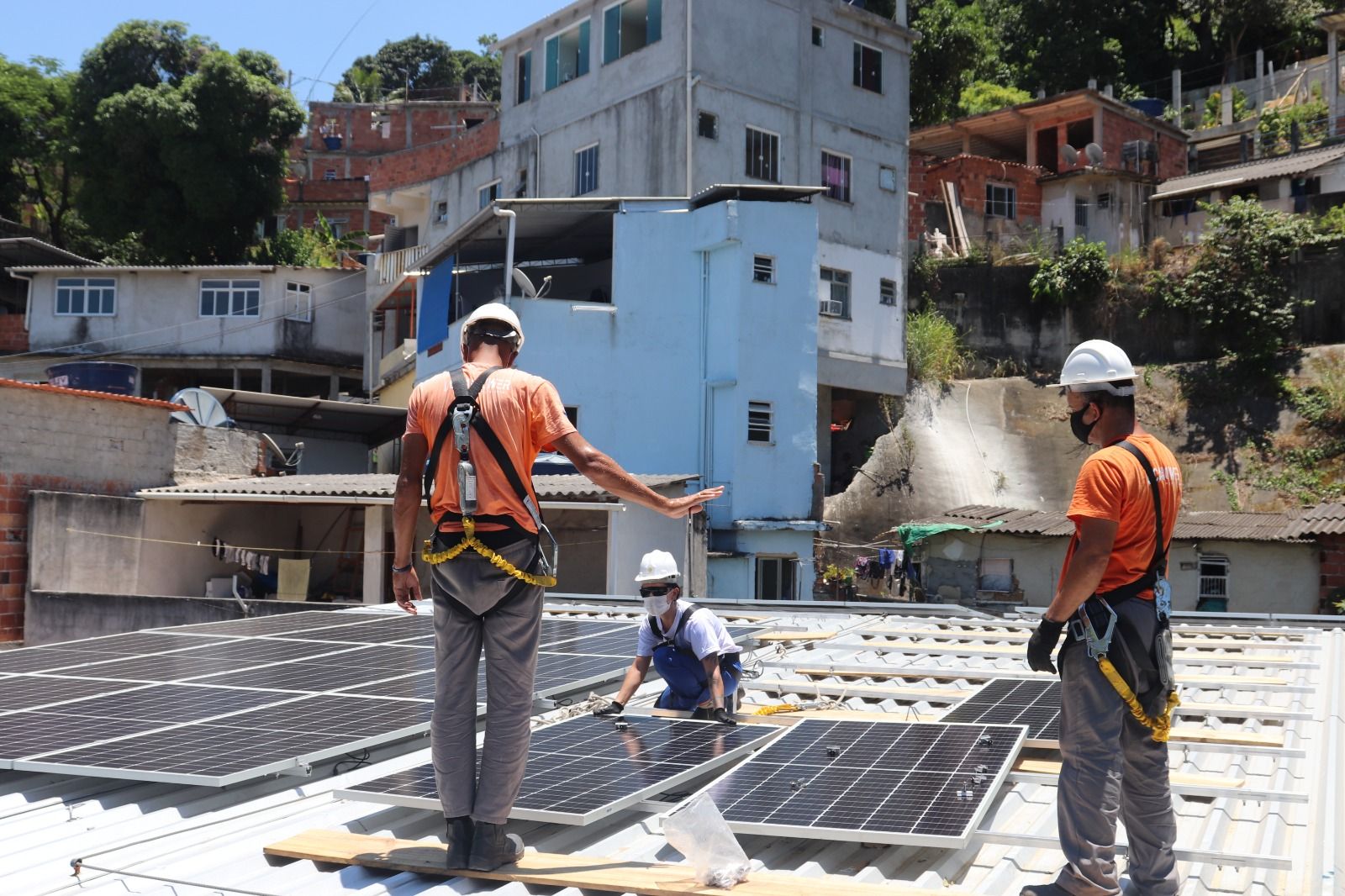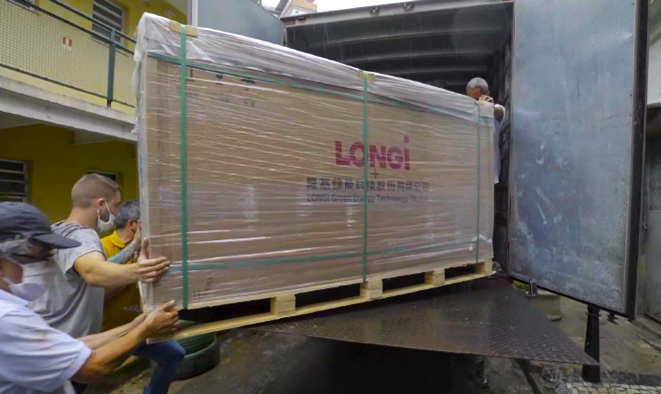São Paulo, Brazil - Currently, access to energy is a significant limitation to social development. According to United Nations (UN) data, approximately 789 million people worldwide still do not have access to electricity, and 2.8 billion rely on polluting and harmful fuels for cooking. The lack of access to reliable energy hinders progress in areas such as education, health, and economic development.
To change this scenario, it is essential to ensure reliable, sustainable, modern, and affordable access to energy for all, as established by Sustainable Development Goal (SDG) 7. To achieve this goal by 2030, it is necessary to invest in clean energy sources, such as solar, and improve energy productivity. Additionally, expanding infrastructure and improving technology for clean energy in all developing countries is crucial, aiming to benefit the communities that need it most.
Pilot Project in Brazil
The communities of Babilônia and Chapéu Mangueira, located in Rio de Janeiro (RJ), were the first Brazilian favelas to implement a solar energy cooperative: the Percília e Lúcio Renewable Energies Cooperative. The model, implemented in 2021 with the support of the NGO Revolusolar, allows the energy generated by solar plants to be converted into credits on the electricity bill for cooperative members. Moreover, members participate in workshops on sustainability and professional training to work in the installation and maintenance of photovoltaic panels. “Solar energy is more beneficial for the poor, for whom the cost of energy weighs more. In Chapéu Mangueira, it boosted tourism and the local economy because the money families save is spent on local services and businesses. This is already happening, it just needs to be encouraged," says Dinei Medina, president of the cooperative.
Cooperativism emerges as a way to further democratize access to energy. While the upper class spends about 3% to 4% of their income on energy, the low-income class can spend up to 30% to 40%. "It is a very important tool for the economic issue, as it reduces energy expenses," emphasizes Eduardo Avila, executive director of Revolusolar. “If a person saved R$200 with conventional energy credits, previously of R$300, then they will pay R$100 as a fee to the cooperative and the other R$100 will remain as their net savings,” explains Avila.
With three years of operation, the distributed generation system has already produced 70,425 kWh, enough to supply 50 families and avoid the emission of 7 tons of CO2 into the atmosphere. Additionally, the community's electricity bill savings, amounting to R$80,000 annually, allowed the saved amount to be allocated to a community fund. The resources from this fund were used to pay those involved in installing the panels, electricians, teachers, among others.

Among the various partners of the Cooperative, LONGi stood out in 2021 by donating 60 solar modules installed on the roof of the Babilônia Residents' Association. Combined, they form a shared energy generation system of 26 kWp, benefiting 30 families associated with the Cooperative.

According to George Wu, Director of Marketing and Products for Latin America at LONGi, "Sunlight naturally illuminates the Earth and has the potential to provide a consistent and equitable energy source for all of humanity. However, the distribution of access to solar energy remains unequal worldwide, and this disparity must be addressed." In line with its mission of “to make the best of solar energy to build a green world,” LONGi has set sustainability goals to “make clean energy accessible to all” and the concept of energy equality of “achieving unity in diversity due to sunlight,” representing the company's greatest goodwill in its business philosophy.
This initiative in partnership with Revolusolar not only promotes energy sustainability but also strengthens the local economy, improves the quality of life, and fosters cooperation within the community.
About Revolusolar
Revolusolar is a non-profit organization founded in 2015 in Morro da Babilônia, Rio de Janeiro. Its mission is to promote the sustainable development of low-income communities through solar energy. To achieve this, communities, academia, the private sector, and the public sector are mobilized to build and expand a social solar energy model.
Revolusolar adopts a decentralized energy generation model, and the direct beneficiaries or interlocutors are local institutions and leaders, such as cooperatives and associations. This business model, known as Socially Oriented Distributed Generation (GDIS), promotes the role of active citizens or 'prosumers,' who consume and produce energy.
Revolusolar's methodology, called the Solar Cycle, combines solar installations with energy efficiency initiatives, professional training, and cultural and educational activities to promote active community involvement. As a result, these locations experience greater safety, energy efficiency, and financial return on the electricity bill for those involved.
Revolusolar plans to expand its operations to 100 more communities by 2025 to benefit those in greatest need. Currently, the institution's projects are carried out, in addition to the Babilônia and Chapéu Mangueira favelas (Rio de Janeiro, RJ), in Solar Circus in Cidade Nova (Rio de Janeiro, RJ), Kurasi Tury in Terra Preta (Manaus/AM), Solar Community (Jabaeté/ES), Paulo Freire Housing Complex (São Paulo/SP), Favela da Paz Institute (São Paulo/SP), Maré Solar (Rio de Janeiro/RJ), and AMAC (Duque de Caxias/RJ).
About LONGi
Founded in 2000, LONGi is committed to being the world’s leading solar technology company, focusing on customer-driven value creation for full scenario energy transformation.
Under its mission of 'making the best of solar energy to build a green world', LONGi has dedicated itself to technology innovation and established five business sectors, covering mono silicon wafers cells and modules, commercial & industrial distributed solar solutions, green energy solutions and hydrogen equipment. The company has honed its capabilities to provide green energy and has more recently, also embraced green hydrogen products and solutions to support global zero carbon development. www.longi.com